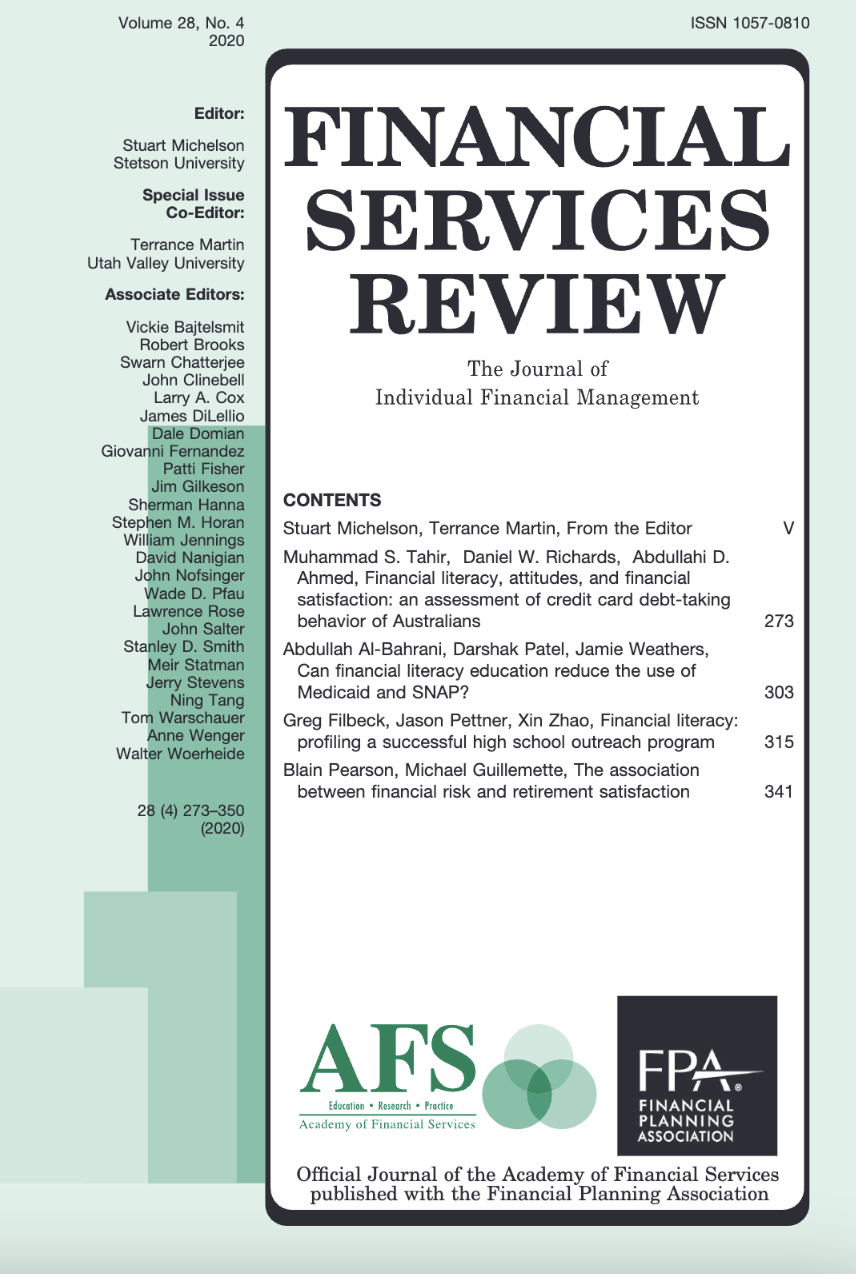Can financial literacy education reduce the use of Medicaid and SNAP?
DOI:
https://doi.org/10.61190/fsr.v28i4.3434Abstract
In recent decades, we have seen an increase in both the complexity of financial markets and the expectations of individual responsibility for people’s financial decision-making. Policies supporting financial literacy education are promoted as a way to decrease reliance on social safety nets. The assumption is that low levels of financial literacy translate to lower economic outcomes and, thus, increased dependence on social programs. We use the 2018 National Financial Capabilities Study to investigate the possible relationship between high school mandated financial literacy education and social program participation and find no evidence of such a relationship.
Downloads
Published
How to Cite
Issue
Section
License
Copyright (c) 2020 Academy of Financial Services

This work is licensed under a Creative Commons Attribution-NonCommercial 4.0 International License.
Author(s) retain copyright and grant the Journal right of first publication with the work simultaneously licensed under a Creative Commons Attribution-NonCommercial 4.0 International License that allows to share the work with an acknowledgment of the work's authorship and initial publication in this Journal.
This license allows the author to remix, tweak, and build upon the original work non-commercially. The new work(s) must be non-commercial and acknowledge the original work.


